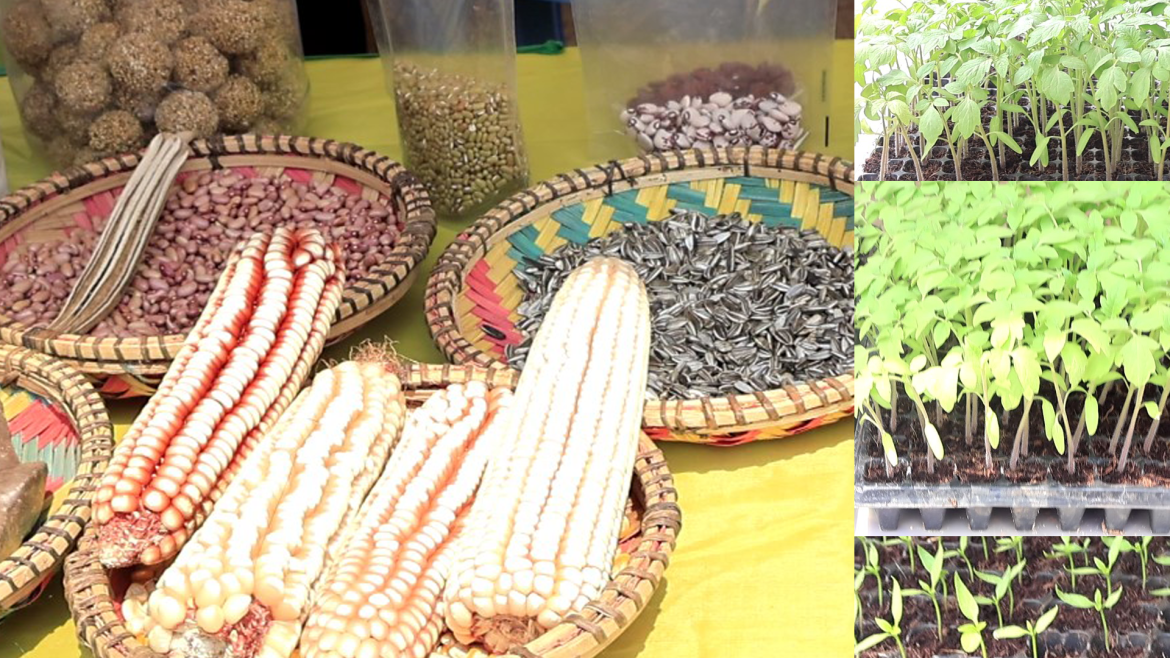By Hamad Rashid / The Loyal Media
There are two different concepts on Agriculture and farmer development. First, Industrial Agriculture gives the Farmer a lot of yield and profits. Second, Ecological Agriculture gives the certainty of Health to the Consumer of food, protects the environment for human health, and reduces production costs.
What are the results of those methods in the current era with the rapid negative effects of climate change?
According to the Agrochemicals and Environmental Risks report issued by Md. Kamal Uddini in 2018, around 10,000 people died and 40,000 people were severely impacted by agrochemical pollution in developing countries. Children suffer from anemia, and adults mostly suffer from cancer. In China, the overuse of agrochemicals has caused serious health problems among farmers and local populations.
Research has proven that 80 percent of all agrochemical-related deaths occur in less developed countries as the farmers of these regions (and their families) are very likely to experience direct agrochemical exposure.
Why do Farmers Use Agrochemicals?
Despite, all the disadvantages of using chemicals, farmers they are often used in the expectation of increasing the crop yield. As the global population increases, there is tremendous pressure on the food supply, engendering the desire at multiple levels to increase crop yield. From the early 1940s to the late 1970s, increases in crop yield were mainly attributed to the use of agrochemicals, (Agrochemicals and Environmental Risks by 2018).
Agricultural Officer and Ecological Agriculture Teacher from Zanzibar Agricultural Research Institute in Pemba Island, Is’haka Khamis Shaame in explaining his experience in industrial and ecological agriculture says, “I think there is a great need for people to change from industrial agriculture to natural agriculture, because there are many cases of cancer that have been reported, and those cases result from the use of food produced without considering organic farming or ecologically, industrial agriculture also kills the biodiversity present in the soil”

Is’haka Khamis Shaame (In the middle with a white T-shirt and Islamic Bazaar) after he finished teaching the teachers and students from six Secondary Schools, met at Hemed Secondary School in Pemba.
Veronica Mbena, an assistant researcher at the Ecological Hub at the Sokoine University of Agriculture SUA, notes that ecological agriculture not only produces better and safer crops but also positively impacts the environment and reduces the farmer’s high production costs.
“We use groups of research farmers who come from various organizations to teach them Agro-Ecology, most of them enjoy it because they see it reduces their costs, they use natural methods to treat diseases in their crops, as well as most farmers do not have enough capital but what is produced is greater the quality, is not only of the food but also of the environment,” said Veronica Mbena.
Elikana Chilangasi Sewando is a small farmer from Kisitwi Village, Gairo District, in an interview with Hamad Rashid, explained the reality of chemical and ecological agriculture, and has gone through all forms of agriculture.
Hamad: What benefits do you get from organic farming?
Elikana: The benefit begins with seeds, the natural seeds left to us by the elders that we are inheriting for the present generations if we cultivate their crops, they tolerate drought differently from the crops of modern seeds”
Hamad: Have you ever farmed using industrial fertilizers and pesticides?
Elikana: Yes”
Hamad: Are there any consequences of what you witnessed?
Elikana: First, the land dries up and the crops cannot tolerate drought, but the other issue is repeating the same seed it cannot germinate, we have to go to the input stores to buy modern seeds again, and also if you cultivate without applying industrial fertilizer you will not get a harvest so, you will not get anything, and there is a large cost required, now we see that it is better to return to our original agriculture”

SUA University participates in Ecological Agriculture.
Dr. Newton Kilathe a Lecturer from SUA University, and a member of the executive committee of the agro-ecology Hub at the University, which until August 2024 has funded 52 agro-ecology research projects, implemented by undergraduate and postgraduate students says, “One of the principles of agroecology is to protect environment, to use a combination of different crops, as well as ecological agriculture directs the planting of fruit trees along with crops, but also natural medicine trees, only by doing this we take care of the environment and deal with climate change, but secondly we protect soil erosion, you know when we say environmental damage we are talking about land and water damage”
Dr. Newton added, “When you use chemicals in crops after harvesting, if you go to wash the fruit or vegetable, you cannot remove the chemical inside so, it must affect the consumer, also, there are insects that are friendly to crops if you see vegetables that are not accessible to any insect, realize it is dangerous for the health of the human consumer”
The University of Agriculture in Tanzania (SUA), has been providing various experts in the Ministry of Agriculture and those who go to provide knowledge outside of Tanzania, this article has again asked Dr. Devotha Mosha a senior researcher of agriculture and natural resource management, how does the University advocate agroecology to respond on Climate Action? “Our program in the agroecology hub started in 2019, we work with farmers in groups with individual farmers, and the goal is to educate them so that they can use ecological farming methods, this project also provides training to students and extension stakeholders so that they can educate farmers to the whole Country,” said Dr. Mosha.

Dr. Devotha Mosha: A senior researcher in agriculture and natural resource management at SUA University.
What should be done?
The use of agrochemicals has been questioned by many critics, but no significant solution has, as yet been offered.
The solution stated in the Agrochemicals and Environmental Risks is, “Agrochemical-based agricultural practices should be discouraged, and the agricultural community should be taught to recognize and utilize organic agricultural systems as a positive alternative to agrochemical application. Necessary changes need to be made in international environmental law and organizations to recognize and integrate both State interests and environmentalism”.
Ministry of Agriculture Tanzania on agroecology.
In April 2024 at the ecological agriculture stakeholder meeting held in Dodoma, the Director of Policy and Planning of the Ministry of Agriculture, Obadia Nyagiro, said ecological agriculture is important for Tanzanians because it will bring economic productivity, protect consumer health, soil health, and increase income.
The meeting was aimed at creating a work plan for the year 2024/25 for the implementation of the priorities of the National Ecological Agriculture Strategy for 2023-2030 (NEOAS) that will bring about agricultural reform in the country, whereby, Obadia said that the strategy is based on the Agricultural Policy to direct issues of setting up a production system, access to markets and identifying organic agricultural products.
“The strategy itself was launched at the end of last year (2023) and is ready for implementation, what made us meet is how to implement this strategy by preparing a work plan every year for seven years of this national strategy, as we involved you in its preparation, we stakeholders must participate by setting the goals of its implementation every year,” he said.
He added that “the government will continue to provide cooperation to prepare the program successfully as stakeholders need to participate in sustainable agriculture for the environment and health to bring productivity to the agricultural sector”.
After reading this article, you can now analyze which type of agriculture is environmentally friendly and mitigates climate change, do you have any perspectives?


1 comment
[…] Ecological or industrial agriculture, to respond to climate change and human health? – The Loy… […]